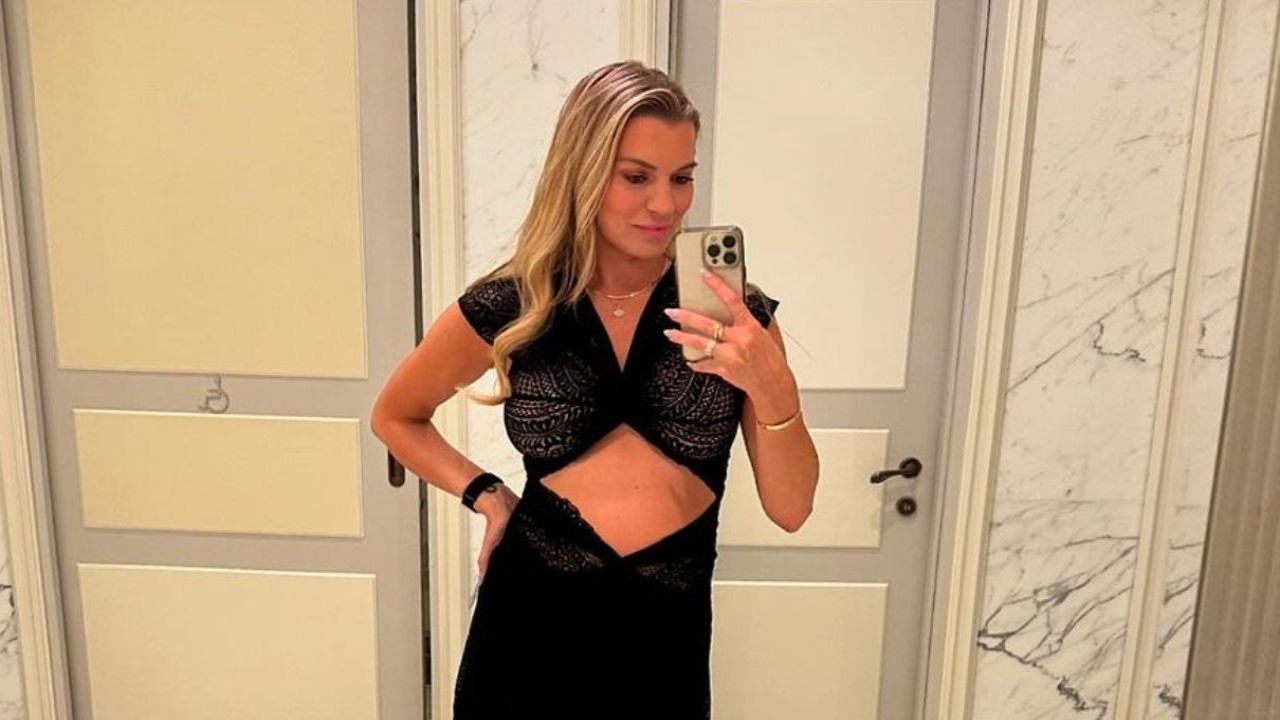Who Is The Night Stalker In MaXXXine? Real-Life Reference EXPLORED
MaXXXine intertwines true crime references to the Night Stalker and Black Dahlia, enhancing the narrative's depth and setting, while exploring Maxine Minx's journey in 1985 Hollywood.

-
The film references notorious real-life cases, the Night Stalker and Black Dahlia
-
These references highlight themes of vulnerability and ambition
Ti West’s MaXXXine becomes the third part of a slasher trilogy with allusions to two famous real-life crime stories; Night Stalker and Black Dahlia. These references carry a deeper meaning within the story.
The critics have been pleased with it, as well as the fans, that is how this movie stands out as the last chapter in Minx’s life who wanted to work for Hollywood by breaking through the adult entertainment industry. But on her way there, she takes a dark turn when murders erupt around her just after she lands her first major film role.
Night stalker: The real serial killer
The trailer of MaXXXine suggests that Night Stalker was an important character in the film. However, less information is provided about him in the movie itself. Richard Ramirez aka The Night Stalker was also a serial killer and rapist who operated from April 1984 to August 1985 in the Los Angeles area.
Ramirez started by committing burglaries but was little by little carried away into stalking people then rape and murder followed his criminal activities which were introduced to him by one of his cousins. He victimized both children and elderly women alike.
His arrest came after his fingerprint was discovered at a crime spot where he had killed someone or something. Interestingly though, Ramirez never showed any remorse for any of these things he had done.
The role of the Night Stalker in MaXXXine
In MaXXine, news coverage about Night Stalkers’ crimes acts as red herrings toward murders within the movie itself. Maxine and other sex workers don’t appear bothered despite what is happening in Hollywood now because of fear for their lives due to this specific group among other things related to violent crimes against them?
We are not told why these women aren’t afraid but it implies they’ve become jaded while already living dangerously amidst sexual violence and legal impunity. Ultimately, however, the Night Stalker is not the main antagonist in the movie. Maxine’s father, Earnest Miller, a religious extremist, is the true villain of the piece.
The decision from a narrative perspective was clever if at first disappointing. It avoids any questions regarding moral implications relating to glorification of real-life serial killers as well as shifts focus from murderer to victims and their stories.
The Black Dahlia: A cold case legend
Black Dahlia was a young aspiring actress who was viciously killed in 1947. Her body, mutilated beyond recognition, was found in Los Angeles, and her murder is still an unsolved crime.
Her murder received extensive media attention that propagated rumors about her being promiscuous. In spite of many confessions and theories, her killer has never actually been identified.
Parallels between Maxine Minx and Elizabeth Short
In MaXXine, Maxine and her friend laugh about the Black Dahlia story, drawing a comparison between Maxine and Elizabeth Short. Both women had difficult relationships with their fathers and moved to LA to act just like Maxine did.
Although they held different positions, porn star on one hand while waitress on another, both experienced similar kinds of hardships as well as social condemnation, as shown by this character in reference to Short, which shows what would have happened if she had taken another path.
Accuracy of the true-crime references
Most of the allusions to true crime in MaXXXine are accurate. The Night Stalker targeting women and using satanic symbols portray Richard Ramirez’s actual offenses accordingly.
However, it introduces fake elements to make him appear as if he targeted prostitutes, which corresponded to Maxine’s portion well enough but also may very probably resemble the details added.
Unlike other 1980s serial killers who preyed upon prostitutes, reasoning therefore suggested by this change that such a thing could indeed happen, thereby making it a plausible addition here.
The Black Dahlia reference is more of a thematic nod than a detailed exploration. The film acknowledges Short’s aspirations and tragic fate, drawing a poignant parallel to Maxine. The inaccuracies in the joke about Short’s promiscuity and involvement in sex work reflect the sensationalized media coverage of her murder rather than the reality of her life.
Strengthening the movie’s setting
True crime references in MaXXXine help shape its Hollywood 1985 setting. Ignoring what happened to Los Angeles because she was attacked by Night Stalker would have been unreal for fans of horror and true crime, breaking the film’s realism. Nevertheless, there is still an appropriate place for mentioning The Black Dahlia as part of Los Angeles folklore within this particular story-line.
These references contribute to the film’s atmosphere and underscore the themes of vulnerability and ambition. By weaving real-life crime stories into its narrative, MaXXXine creates a richer, more immersive experience for viewers, making it a fitting conclusion to Ti West’s trilogy.

Lindsay Hubbard Reveals It's 'Clear' to Her That the 'Universe Had a Plan' For Her Amid Pregnancy News





 JOIN OUR WHATSAPP CHANNEL
JOIN OUR WHATSAPP CHANNEL













































